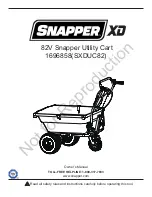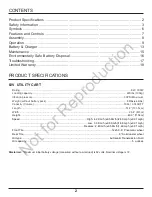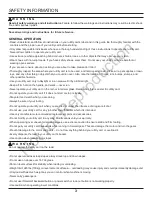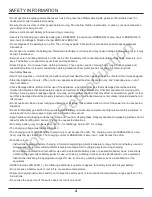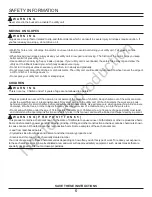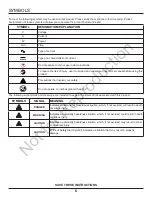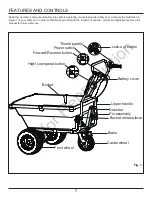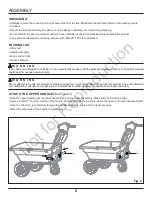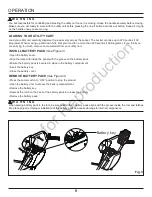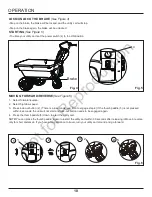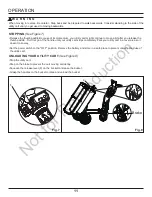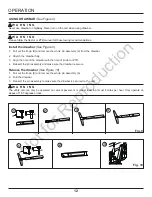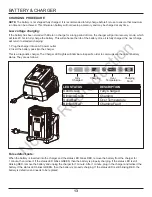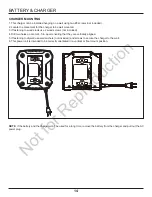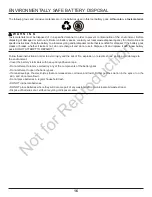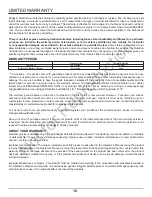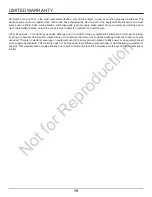
5
SAFETY INFORMATION
W A R N I N G
Never stand in the bucket to activate the utility cart.
MOVING ON SLOPES
W A R N I N G
Slopes are a major factor related to slip-and-fall accidents, which can result in severe injury. All slopes require caution. If
you feel uneasy on a slope, do not drive on it.
• Watch for holes, ruts, or bumps. Be careful on uneven terrain to avoid overturning your utility cart. Tall grass can hide
obstacles.
• When moving down slopes, always keep your utility cart in low gear and moving. The friction of the motor helps you keep
better control of your utility cart.
• Use caution when carrying heavy loads up slopes. If your utility cart is overloaded, the safety fuse may trip and allow the
utility cart to rollback toward you, which may cause severe injury.
• Do not turn on slopes unless necessary, and then, turn slowly and gradually.
• Do not move near drop-offs, ditches, or embankments. The utility cart could suddenly turnover if a wheel is over the edge of
a cliff or ditch or if an edge caves in.
• Do not park your utility cart on hills or steep slopes.
CHILDREN
W A R N I N G
This is not a toy. Children under 14 years of age are not allowed to operate it.
• Tragic accidents can occur if the operator is not aware of the presence of children. Keep children out of the work area and
under the watchful care of a responsible adult. Stay alert, and turn the utility cart off if a child enters the work area. Look
behind and down for small children before and while driving backwards. Use extreme care when approaching blind corners,
doorways, shrubs, trees, or other objects that may obscure your view of a child who may run into the work area.
• Do not allow children under the age of 14 to operate this utility cart. Children who are 14 years of age and older must read
and understand the operating instructions and safety rules in this manual, and must be trained and supervised by a parent.
W A R N I N G ( P R O P O S I T I O N 6 5 )
This product contains a chemical known to the state of California to cause cancer, birth defects or other reproductive harm.
Some dust created by power sanding, sawing, grinding, drilling and other construction activities contains chemicals known
to cause cancer, birth defects or other reproductive harm. Some examples of these chemicals are:
• Lead from lead-based paints,
• Crystalline silica from bricks and cement and other masonry products, and
• Arsenic and chromium from chemically-treated lumber.
Your risk of exposure to these chemicals varies depending on how often you do this type of work. To reduce your exposure
to these chemicals, work in a well-ventilated area, and work with approved safety equipment, such as dust masks that are
specially designed to filter out microscopic particles.
SAVE THESE INSTRUCTIONS
Not
for
Reproduction

